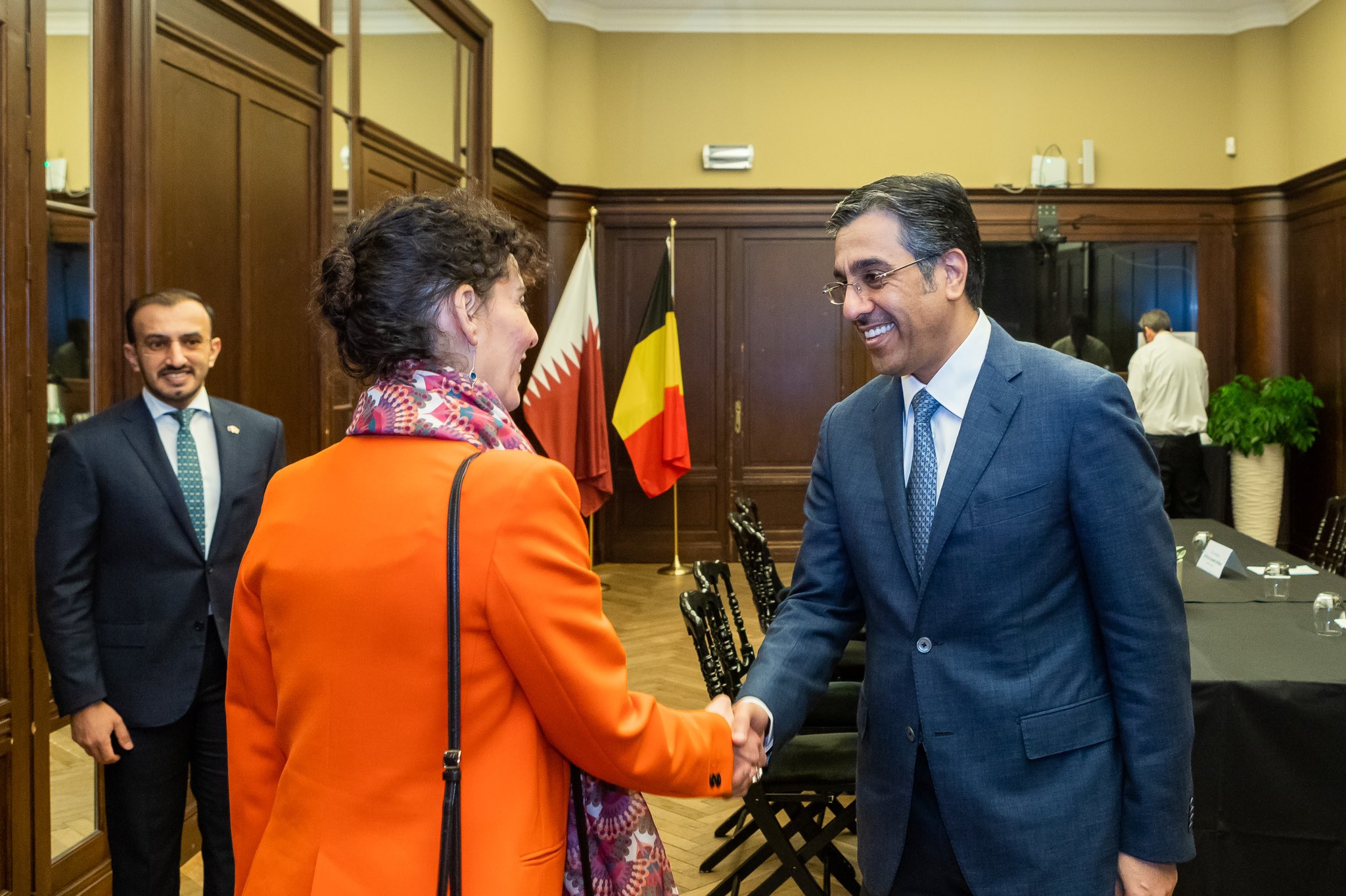With Qatar just days away from being the first country in the region to ever host the World Cup, scrutiny has increased.
Belgium has recognised “Qatar’s significant progress in labour and human rights”, joining global praise of the Gulf state’s steps to reform legislation over the past decade.
This came during a meeting on Monday between Qatar’s Minister of Labour Ali Al Marri and Belgium’s Foreign Minister Hadja Lahbib in Brussels.
“During my meeting with Mr. Al Marri, Qatar’s Labour Minister, we discussed human rights, including women’s and LGBTQIA+ rights. I indicated that Belgium recognises Qatar’s significant progress in labour and human rights,” said Lahbib in a tweet.
The Belgian diplomat noted that challenges over the implementation of reforms remain, with Brussels “ready to share its experience and expertise on social and institutional rights”.
Lahbib added that Belgium is also willing “to conclude a memorandum of understanding on social inspection and social dialogue.”
The meeting came after Lahbib announced plans to visit Qatar at the 2022 FIFA World Cup, where she will be supporting the Red Devils despite ongoing criticism in Brussels.
The diplomat is representing her country’s delegation at Belgium’s first match, scheduled to take place on 23 November against Canada. Belgium had secured its spot for the World Cup last year after a 3-1 win over Estonia.
Last week, Lahbib said halting dialogue does not yield progress and visiting Qatar would enable Belgium to discuss the continuation reforms implemented in recent years to address workers’ rights.
“I am therefore opposed to a boycott of the World Cup which would be totally ineffective and purely ideological, especially since it would isolate us on the international stage. Most European countries have already indicated that they will send a ministerial delegation to Doha,” she said last week.
Meanwhile, several bars and municipalities in Brussels have opted to boycott the major sporting event, citing concerns over the migrant workers’ situation in Qatar as well as the rights of the LGBTQ community.
Belgium bar owner Emmanuel Simonis told Euronews last month that he made the decision based on “political, ethical, social and ecological reasons.”
Anti-Qatar campaign
Since Qatar won the bid in 2010 to host the major tournament for the first time in the Middle East, headlines – mainly from western media – as well as reports from rights groups have sounded the alarm on Qatar’s track record on human rights violations.
The Gulf state says it has responded to the concerns by introducing mass reforms to its legislation, all of which have received global praise by rights groups including the UN’s International Labour Organization, which has set up an office to oversee such changes in Qatar.
Last year, various European countries launched a campaign to boycott the World Cup. These include Denmark, the Netherlands, and France. Despite this, ticket sales have spiked in Europe.
Earlier this month, the Chief Executive Officer of Qatar 2022 Nasser Al-Khater said the campaign against Doha and its hosting of the World Cup is linked to Europe’s refusal to see a country outside its region take on the tournament.
“European countries feel they have monopoly over the World Cup. Europe has hosted 11 tournaments out of 22 tournaments, of course it refuses that a country like Qatar or an Arab Muslim country hosts a tournament like the World Cup,” Al-Khater told Al Jazeera Arabic in a televised interview.
Al-Khater said accusations targeting Qatar have appeared to be backed by racist and political motives.
Such racism appeared earlier this month in French outlet Le Canard Enchaîné, which came under fire for publishing a caricature depicting Arabs in ‘Qatar’ football kits as terrorists. The image employs the exhausted use of ‘savages’ – ‘long bearded’ angry men with dark hair, angry expressions in possession of guns and knives.
During the meeting in Brussels, Qatar’s labour minister held up the racist cartoon, highlighting the attacks that targeted the Gulf state.
Doha’s news agency (QNA) reported that Al Marri noted that “some politicians and some media outlets in Western countries have lost the moral and professional motive in their attack against Qatar”.
“His Excellency pointed out that the false slander campaign transgressed all limits in its attempt to discredit Qatar, the latest of which was the claim that the World Cup organisers used fake fans who receive money to attend the matches,” added QNA.







